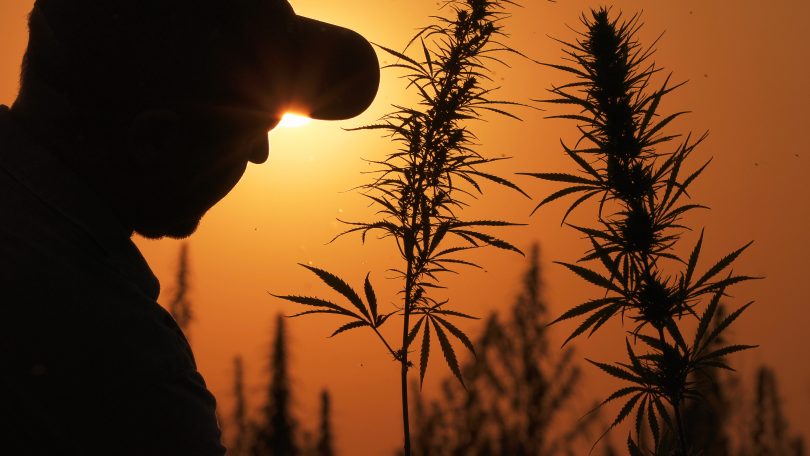After decades of prohibition, the 2018 Farm Bill granted full legal status to hemp a couple years ago. Many thought this would be the end of various challenges that have been plaguing those in the industry for years.
This is actually true, for people in the hemp industry, many new rights have been achieved these last couple of years. This includes advances on the banking front and many, much-needed societal and economical benefits. Unfortunately though, the U.S. hemp industry has been off to a rough start and the current COVID-19 has only made the road ahead even bumpier, especially for farmers.
Working in the hemp industry?
Sign-up form below to the Hemp Business Newsletter.
Ongoing Challenges in the Hemp Industry
For years, hemp farmers (as well as everyone else in the hemp, CBD, and cannabis industries) historically struggled with banking. They were unable to have access to banking, business loans, and other services offered by large financial institutions. Another common problem, and one that was specific to farmers, was a lack of crop insurance. Should a natural disaster (or global pandemic) occur that impacted a farmer’s crops or business, they would have been, for lack of a better word, totally and utterly screwed.
But that all changed thanks to the passing of the updated, 2018 farm bill, which legalized hemp and offered farmers and business owners a new level of institutional support. However, that doesn’t mean other challenges don’t continue to pop up.
In addition to ongoing issues with law enforcement and those who still stigmatize hemp and confuse it with cannabis/marijuana, the industry has some unique issues such as: FDA delays with establishing regulation of CBD products, manufactured CBD products continue to be regulated under the controlled substances act, extremely prohibitive federal cultivation restrictions with “heavy DEA presence”, a hemp market that’s facing oversupply and plummeting values.
COVID-19 Is Adding to the Problem
As if all the aforementioned struggles weren’t bad enough, now hemp farmers face additional challenges brought on by the COVID-19 pandemic. Farmers and small business owners (in all industries not just hemp) have been hit particularly hard these last few weeks.
Cannabis Use During the COVID-19 Outbreak – A Look At The Numbers
“Agriculture is deemed essential, but there’s an agricultural dynamic that’s being created by the pandemic where it’s interfering with the supply chain,” said Tim Gordon, president of the Colorado Hemp Industries Association. “These disruptions are going all the way to the hemp farmers.”
“More than 17,000 farmers licensed to grow hemp are experiencing significant headwinds and instability as a result of the COVID-19 pandemic and must be able to access disaster relief programs that can support them now,” Eric Steenstra, president of Vote Hemp, mentioned in a statement.
Benefits For Hemp Farmers During the Pandemic
Although this is obviously not good news, the silver lining is that since hemp is federally legal now, industry businesses are eligible for for Small Business Administration loans, federal stimulus packages, federal and state agricultural grant programs, tax relief, and other benefits.
The Coronavirus Aid, Relief, and Economic Security Act (the “CARES Act”) both provide economic relief for small businesses (and hemp farmers) impacted by COVID-19. Unfortunately, SBA policy dictates that marijuana and ancillary businesses are not eligible for benefits.
Additionally, new legislation added another $10 billion to the disaster loan programand increased paycheck protection funding from to $349 to $659 billion after the initial amount quickly ran out. A record number of businesses applied, including some large chains with more than 500 employees. However, the majority of funds went to smaller companies.
CBD Flowers 101: 10 Most Frequently Asked Questions Answered
Loan Programs
Let’s take a quick look at what loan programs are available for hemp farmers and small business owners and what each package includes.
SBA Loans:
- Paycheck Protection Program (which quickly exhausted funds but was replenished by Congress last week by $321 billion).
- Economic Injury Disaster Loans (EIDL) and advances.
- Small businesses and farms are eligible.
EIDL Loans:
- Up to $2 million in loas to be used for payroll, fixed debts and other bills.
- Up to $10,000 without repayment if used for: Paid sick leave. Maintaining payroll to retain employees. Meeting increased costs as a result of interrupted supply chains, rent or mortgage payments or to repay obligations that can’t be met because of revenue losses.
Additional benefits include Payment Protection Program loans, which allow borrowers to cover payroll, rent payment or mortgage interest, and other business-related costs. PPP loans are forgivable and they’re processed on a first-come, first-served basis. Funding for this program is expected to continue.
Also available is the SBA Express Bridge loans that provide expedited loans of up to $25,000 for disaster-related purposes. These loans are processed quickly and can be used to bridge the gap while applying for EIDL or PPP. Express Bridge loans must be repaid in full, and due to the ongoing crisis, they will be approved through March 12, 2021.
Even More For Farmers
In addition to programs listed above, the CARES Act appropriated relief funds specifically to the agricultural sector. These include:
- $9.5 billion to the U.S. Department of Agriculture to provide financial support to farmers and ranchers.
- $14 billion to the Commodity Credit Corp. (CCC), which will allow the USDA to develop new support programs to help agricultural businesses.
- Extensions on repayment of commodity marketing assistance loans.
Last week, the USDA announced a $19 billion agricultural relief package, providing direct payments to farmers based on commodity losses. Agriculture Secretary Sonny Perdue confirmed that the $500 million earmarked for “other crops” includes hemp. This package includes:
- $9.6 billion for the livestock industry.
- $3.9 billion to row crop producers.
- $2.1 billion to specialty crop producers.
- $500 million for other crops.
Hemp farmers also might be eligible for the USDA’s $16 billion Coronavirus Food Assistance Program, which will provide additional subsidies for commodity losses.
What’s the Deal with Organic Regulation for Cannabis?
Other Non-emergency Farm Service Agency loans may or may not be available for hemp farmers. These include but are not limited to: direct operating loans, farm ownership loans, USDA organic certification cost sharing programs, farm storage facility loans, and specialty loans for minority and women farmers, novice farmers, and Native American Tribes.
Hemp farmers should also consider looking into state-level benefits. Many states including Colorado, California, and Kentucky are offering added benefits and relief packages, on top of what one would get from the federal government.
For more information and updates to these loan programs, check out the USDA’s Resource Guide.
Final Thoughts
Even though there is never a good time for a global pandemic, at the very least it happened after hemp became federally legal, meaning these hard-working farmers can at least access some benefits to prevent them from being completely bankrupted by the COVID-19 crisis. For more information or if you need help applying for any of these program, contact us directly at info@cbdtesters.co.
Thank you for stopping by, check back frequently and make sure to subscribe to the CBD Flowers Business Newsletter to stay up-to-date on all things relating to the hemp and cannabis industries.









